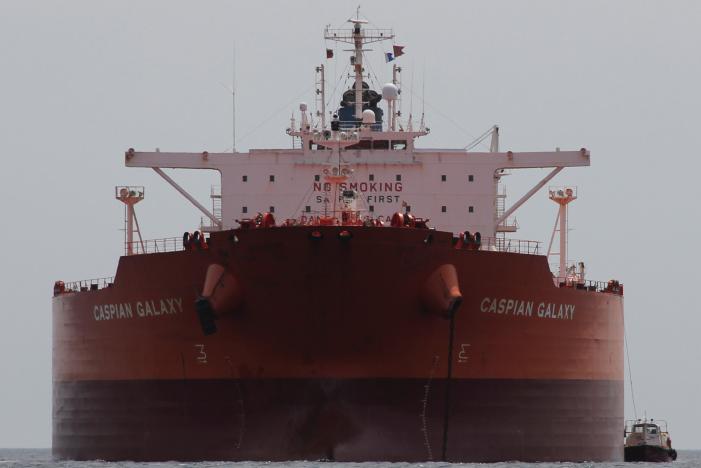
Oil Glut Closes Middle East’s Largest Crude Terminal
Posted 13/04/2020 12:35
With the coronavirus choking fuel demand and the world awash in surplus crude, even the Middle East’s main oil-trading hub has run out of room to store unwanted barrels.
Terminal operators at Fujairah in the United Arab Emirates say they’re turning down requests from traders and refiners to store crude and refined products, whereas a year ago they had ample space. The port’s 14 million barrels of commercial crude-storage capacity is just a fraction of what Saudi Arabia and Abu Dhabi provide for their state oil companies.
Without tanks to lease, traders face costly constraints on their role as matchmakers who link a specific supply here with a willing buyer there. The global oil glut is making it harder for traders to even out imbalances in the market, and the plunge in crude, down about half this year, is making matters worse.
“If tanks are leased or blocked, then traders need to push back on taking crude,” said Edward Bell, senior director for market economics at Emirates NBD PJSC in Dubai. That, in turn, could “force production shut-ins.”
Demand for storage, an unglamorous but essential link in the global energy supply chain, is at its highest in years. From Singapore to Cushing, Oklahoma, tanks are brimming with crude, gasoline and other products, nowhere moreso than in Fujairah, a gateway for shipments from the world’s most prolific oil-producing region.
“The current capacity isn’t enough, for sure,” said Malek Azizi, commercial manager at Fujairah Oil Terminal FZC.
Even a tentative deal between Saudi Arabia, Russia and other producers to trim output by at least 10 million barrels a day won’t ease the storage crunch at Fujairah. While such a cut would partly offset lost crude demand, Trafigura Group sees oil use plunging by as much as 35 million barrels daily -- roughly a third of normal global output -- as countries prolong lockdowns over the coronavirus.
Fujairah, which hugs a ribbon of coastline between the craggy Hajjar Mountains and the Gulf of Oman, cemented its position in the world’s oil-storage and supply network over the last 30 years. It started out as a refueling station for tankers shunting crude from the Persian Gulf to refineries in China, the U.S. and elsewhere. It also built tanks where traders could stockpile fuels.
As state producers Saudi Aramco and Abu Dhabi National Oil Co. boosted refining capacity and started their own trading units, Fujairah’s storage operators benefited from the increasing volumes of crude and refined products flowing to and from the Gulf. Now that refineries are processing less crude and many of the world’s vehicles and aircraft are at a standstill, those regional flows have dwindled.
Stockpiles of fuel oil and other heavy distillates at Fujairah swelled more than 30% in the past year to 15.4 million barrels, according to the Fujairah Oil Industry Zone, which oversees the city’s terminals. Local authorities don’t provide inventory data for crude oil.
Two projects to add more than 62 million barrels of storage won’t be built until next year at the earliest.
“We are going to run out of storage because the demand declines are so steep,” Amrita Sen, chief oil analyst at Energy Aspects, said in a Bloomberg Television interview.







